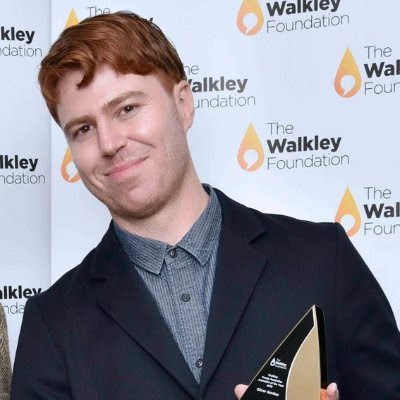
Telling stories with First Nations people —rather than for them—is essential to ethical and accurate journalism, the ABC’s award-wining journalist Oliver Gordon says.
That means listening deeply, building trust, and understanding historical and political context.
“In terms of being a journalist, it’s important to always be listening, actively listening and learning,” Gordon said.
“I did a language class in Arrernte basically as a sign of respect to the people in that part of the world.”
Gordon spent more than three years reporting in Alice Springs.
He said journalists who fail to engage properly with community voices and Australia’s colonial history risk framing entrenched and systemic issues, as if they are new or temporary.
“A lot of the time they’re not new,” he said. “There have been various governments who have tried to implement policies to close the gaps for decades unsuccessfully. Having an understanding of that context is really important.”
Gordon’s comments come amid renewed scrutiny of media coverage of Aboriginal communities, with the Voice referendum and unrest in Alice Springs highlighting how reporting can misrepresent First Nations people and reinforce racial stereotypes.
“I think unfortunately there is still a huge knowledge gap and there are still prejudices that creep into reporting,” he said.
Local knowledge and lived experience are essential in combating these prejudices and representing the issues facing First Nations communities in a way that is culturally safe and accurate.
“Central Australia is such a unique place and it really helps for your reporting if you’ve spent a fair amount of time there.”
Gordon first moved to Alice Springs after working in the Kimberley. “The way it happened was that I was reporting up in the Kimberley, doing a long-distance relationship with my partner, who got a job in Alice Springs,” he said. “Then an opportunity came up to report for the ABC in Alice Springs and I jumped at it.”
He said his fascination with the region only deepened after he arrived. “Once I got there and started reporting, I became even more fascinated, and it just kept on becoming more interesting, more fascinating, more complex,” he said.
“There are just so many stories. I don’t think that there are as many journalists there as there are in other parts of the country, like in Melbourne, Sydney or Brisbane, so you can tell stories that are not being talked about by other parts of the media—and I think that’s a huge privilege.”
Now based in Melbourne and working on national programs AM and PM, Gordon still draws on his experience in Central Australia when working on stories. “It’s always about working out who is the best person to speak to for each story… it’s not always the person that you’d expect,” he said.
He continues to maintain the relationships he built while on the ground. “It’s just about building contacts in that part of the world. Building trusted relationships and keeping them up,” Gordon said. “Even though I don’t live there anymore, it’s always worth having a phone call and catching up with someone even if it doesn’t lead to a story.”
For Gordon, this follow-through matters. “It’s about demonstrating that you care about that part of the world and are still interested, even if you don’t live there anymore.”

